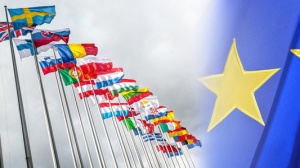H.E Prime Minister Mark Rutte
H.E Trade and Development Minister Lilianne Ploumen
H.E Foreign Minister Bert Koenders
Kingdom of the Netherlands
P.O. Box 20001
2500 EA The Hague
The Netherlands
Re. Dutch-Palestinian Bilateral Cooperation Forum
Your Excellency,
On 29 and 30 October 2015, the second edition of the Dutch-Palestinian Bilateral Cooperation Forum will be convened in The Hague. The upcoming edition builds on the 2013 forum in Bethlehem where the parties agreed that the forum’s principal objective is the strengthening of bilateral relations by increasing cooperation in the field of innovation and by bringing together representatives from both governments, including mayors from local councils, from universities and from the private sector. It was also decided that the forum would strengthen cooperation in the field of water, food production, agriculture, renewable energy, recycling and ICT.[1]

Al-Haq and Article1 Collective take this opportunity to highlight the grave implications of the Israeli occupation on the ability of the Netherlands and Palestine to achieve the aims of the forum. Directly relevant to the envisioned cooperation are Israel’s severe restrictions on Palestinian movement of goods and people. Israel does not allow Palestinians to move their products freely within the OPT nor to freely export their products. These movement restrictions are currently hindering the full implementation of the EU-Palestine Association Agreement, which foresees the progressive liberalization of Palestinian trade and the economic development of the Gaza Strip. The effects of Israel’s movement restrictions have also been confirmed by UNCTAD in their 2015 report on its assistance to the Palestinian population. In that report, UNCTAD underlined that “multiple constraints on movement subvert the actual and potential investment of exports-oriented firms and enhance the dependence of the Occupied Palestinian Territory on imports”. [2] Israel’s unlawful exercise of sovereignty over Palestinian natural resources is another emblematic example of the way in which Israel hinders Palestinian economic development and cooperation with other governments. At the present time, Israel exploits Palestinian natural resources, including water, for the benefit of its citizens including settlers at the expense of the Palestinian population. [3] Dutch-Palestinian cooperation on water management is therefore contingent on the end of Israel’s occupation and its violation of the Palestinian right to self-determination.
Al-Haq and Article1 Collective would also like to remind the Dutch government of the responsibilities and risks attached to trade in a conflict zone. There are three specific dominant risks that warrant attention by the Dutch government: the risk of being associated with or involved in violations of international law, including the illegal settlement enterprise; being associated with or involved in the exploitation of Palestinian labor and the need to full implementation of ILO standards[4]; being associated with or support the Israeli banking system, which finances the illegal settlement enterprise.[5]
Finally, we would like to underline that the establishment of the Dutch-Palestinian forum does not justify the creation and continued convening of the Dutch-Israeli forum. The undersigned echo the position taken by the Palestinian Human Rights Organisations Council that the Dutch-Israeli Cooperation Forum effectively undermines the European Union’s 2009 freeze of its relations with Israel and ignores Israel’s continued violations of Palestinian rights.
In order to ensure a viable Dutch-Palestinian bilateral cooperation, Al-Haq and Article1 Collective call on the Dutch Government to:
- Take the position that the Israeli occupation and its violations of human rights and international law must end, including movement restrictions and exploitation of Palestinian natural resources;
- Ensure that state cooperation does not negatively impact, maintain, or contribute to Israel’s occupation and violations of international law, including by ensuring that OECD guidelines on multinational corporations are respected, which includes a process of due diligence;
- Ensure that Dutch corporations involved in or suspected of being involved in violations of international law in the OPT withdraw its activities;
- Prevents, discourages and raises awareness about corporate complicity in international law violations in the OPT;
- Hold Dutch corporations which are involved in or linked with violations of international law to account;
- Ensure that the Dutch government insures Dutch Palestinian investments and hold those accountable for destruction of its investments in the OPT.
We look forward to future exchanges,
Yours Sincerely
 |
Al-Haq
Shawan Jabarin
General Director
|
 |
|
Article1 Collective
Mieke Zagt
Chair of Board
|





